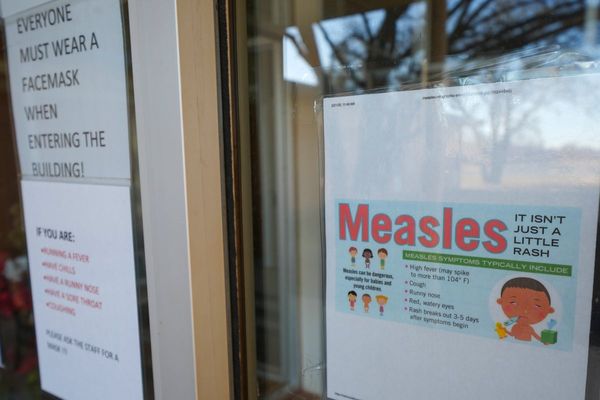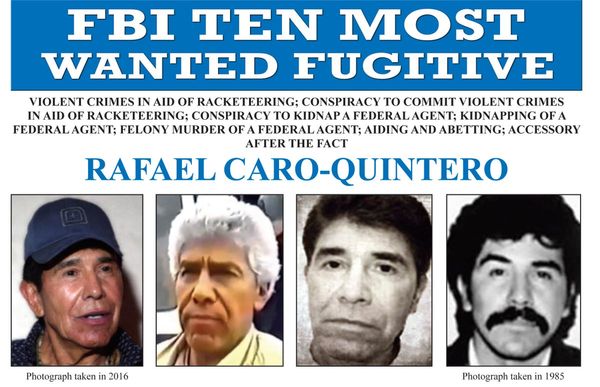
Before the Adriana, an overcrowded fishing trawler, left Libya on 9 June, Sajjad Yousef spoke to his father. His family had begged him not to make the treacherous journey from Pakistan to Europe. But Yousef wouldn’t listen. He wanted to leave the desolation of life in Pakistan far, far behind. It was hard, the journey would be rough, he knew that. His family had taken out loans in the millions of rupees to buy him space on that teeming trawler, and Yousef was ready to take his chance.
Most of the 750 people on board the trawler were Pakistani. They were migrants, fleeing poverty and lack of opportunity but also the ravages of the climate emergency, which is felt acutely in Pakistan. The men and women who risked their lives on the Mediterranean were escaping floods, droughts, glacial melt, crop damage and locust plagues, all of which Pakistan has suffered in recent years. It is a cruel fate to endure disaster after disaster; they were once described as “biblical” but have since become mundane, everyday occurrences.
The Pakistanis shared their fatal journey with other men and women abandoned by the world: Afghans, Syrians and Palestinians. The Adriana stood stationary in that deadly sea for 15 hours, waiting to be saved, yet nothing and no one came. The authorities did nothing; Greek coastguards said the men on the boat refused help. Of the 750 people on board, about 100 are thought to have survived. No women and children are listed among the survivors so far.
The climate crisis bleeds into everything and it will bleed more. It is a migrant crisis. Climate shocks will fuel the wars of the future as water and resources become scarce. Already, according to the Norwegian Refugee Council, disasters displace three to 10 times more people than conflict or war worldwide. Another study by the UN’s Institute for Environment and Human Security estimates that there could be as many as 1 billion climate migrants by 2050. It is the shadow behind the poverty crisis across the world and the cost of living crisis. It is a feminist crisis – the UN estimates that 80% of people globally displaced by climate emergencies are women.
One of the many unfolding tragedies of what we have done to the planet is that we will struggle to fight it. What strategy can be conceived to fight floods and droughts simultaneously? It feels daunting to defend against an onslaught of too much and too little all at once but this is what our reckless and thoughtless burning of fossil fuels has wreaked. While Pakistan is still recovering from the superflood that hit a third of the country last summer, a flood that decimated staple crops, killed a million livestock and wiped away thousands of miles of roads and homes, Europe is facing a drought crisis. At the time my country was drowning, France was facing its worst drought on record. At the beginning of March last year, its water reserves fell to 80% below normal levels.
Too much and too little all at once.
The glaciers in the Hindu Kush, home to the world’s tallest mountains, are melting at unprecedented speed – recent reports from a Nepal-based organisation found that they melted 65% faster between 2010 and 2019 than in the previous decade. Advanced thawing will endanger the lives and livelihoods of the 2 billion people downstream of the majestic mountains. Meanwhile, Barcelona’s reservoirs are running dry after 32 months of drought across Catalonia.
This year is set to be the hottest ever recorded, thanks to the combination of the burning of fossil fuels and the return of El Niño, which will cause parts of the Pacific to warm and thus lead to increased temperatures globally. Forecasters warn that El Niño conditions will continue, and gradually strengthen, into next year. It’s this cocktail that has led to record heatwaves in Siberia – where temperatures topped 30C – as well as in Spain and Canada where the unmanageable heat caused extraordinary wildfires, turning the skies over New York and Washington flame orange. We ought to get comfortable with that phrase: “the worst famines in recorded memory”.
This is the future we have made. So when celebrities and footballers pose for selfies in their vulgar private jets, remember their names. They are not modern-day Neros, fiddling while Rome burns; they are the vandals with the matches. When Big Oil boasts that it doubled its already obnoxious profits, remember the numbers. The oil companies have not only destroyed the only home we will ever have for profit, but they have paid nothing in return – no reparations, nothing to offset the destruction they have caused.
We can use as many paper straws as our hearts desire and we can recycle and travel by train until the end of time (which will be in about 30 years, as far as I can see) but unless oil CEOs act, we cannot even start fighting to save the planet. The Climate Accountability Institute has called for fossil fuel corporations to pay for the damage they’ve caused.
A hundred of the world’s leading economists have signed a letter ahead of the Paris climate finance talks calling for a 1.5% tax to be levied on the world’s richest people to help limit global temperature rises to 1.5C above pre-industrial levels. For argument’s sake, they calculated that a 2% tax on billionaires’ wealth would bring in $2.5tn (£2tn) a year towards paying for climate-related damage in the world’s poorest countries. But that’s nowhere near enough.
Remember also that the richest 1% are responsible for double the carbon emissions of the poorest half of the world’s population. Of course, they can afford to pay a 1.5% tax. They can afford to pay 5%, even 10%. There is no end of money in private finance. There is money in public coffers, too. And yet, this week we were told the UK government plans to drop its £11.6bn climate pledge.
This is not a climate dispatch. It is just a recounting of some of the terrors the month of June brought us. One month. That’s it. And it truly is the stuff of nightmares.
We are at the mercy of time and, simply put, we have none left. I don’t know what writing can do, but at the very least it can provide us a reckoning, a space in which we can refuse to live and die this way. It can remind us that we are not powerless if we can gather, and gather often, against this excess and demand action to save the planet, life on Earth, and ourselves. “It’s this way,” the Turkish poet Nâzım Hikmet wrote. “Being captured is beside the point, the point is not to surrender.”
Fatima Bhutto, the author of books including The Runaways and New Kings of the World, is currently teaching a class on how to write about climate issues
Do you have an opinion on the issues raised in this article? If you would like to submit a response of up to 300 words by email to be considered for publication in our letters section, please click here.
• This article was amended on 7 July 2023 to clarify a reference to the monsoon floods in Pakistan in 2022. An earlier version said a third of the country had been submerged; while the country’s climate minister said last August that this much of the country was “under water”, her office told the BBC in early September that this intended to refer to the number of districts in Pakistan that had declared a state of calamity due to flooding, which at the time was 72 out of 160 districts.







